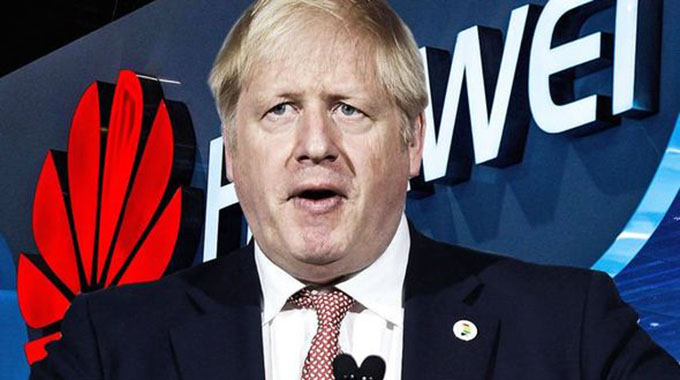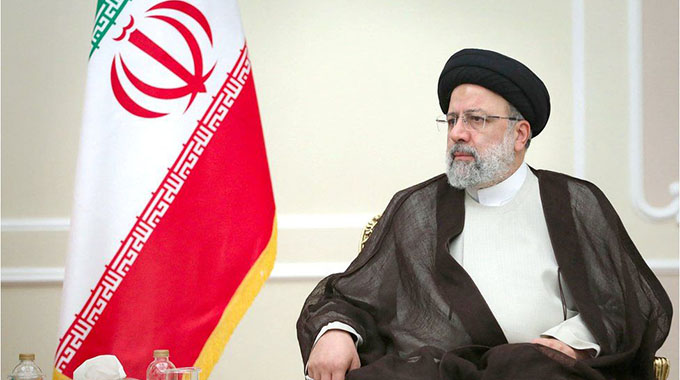UK defends green light for Huawei 5G infrastructure role

LONDON. – UK foreign secretary Dominic Raab has defended the government’s decision to allow the Chinese tech firm Huawei to build non-core elements of the UK’s 5G network, despite designating it a “high-risk vendor”.
US officials had warned against allowing any involvement by Huawei, claiming it posed a security risk.
Explaining the decision to MPs in the House of Commons, Raab insisted that “we know more about Huawei and the risks it poses than any other country in the world”.
He said the government would introduce strict rules to limit Huawei’s influence – and work towards diversifying the market.
“We are establishing one of the strongest regimes for telecoms security in the world,” he said.
Huawei will be banned outright from the “core” of the 5G network, and from operating at sensitive sites such as nuclear and military facilities.
The government will also legislate to cap its share of the market at 35 percent.
The government’s decision was made at a meeting on Tuesday morning of the national security committee (NSC), which includes key ministers and intelligence officials.
A string of Conservative MPs, including the former cabinet ministers Iain Duncan Smith, Penny Mordaunt and David Davis, criticised the decision.
Mordaunt called it “regrettable”, and Davis said: “I do think Huawei should be banned from our networks. The size and complexity of the problem we’re trying to protect ourselves against is enormous.”
Johnson is already facing a fierce backlash from the US, which has blocked the involvement of Huawei in its networks and encouraged its allies to follow suit.
An anonymous US official was quoted by Reuters as saying: “There is no safe option for untrusted vendors to control any part of a 5G network. We look forward to working with the UK on a way forward that results in the exclusion of untrusted vendor components from 5G networks.”
The Republican senator Tom Cotton said: “I fear London has freed itself from Brussels only to cede sovereignty to Beijing”, comparing the government’s decision to “allowing the KGB to build its telephone network during the cold war”.
He called for the US to respond by reviewing intelligence-sharing.
Raab insisted to MPs that Huawei would not be allowed to be involved in the infrastructure underlying the communication of classified information. “Intelligence-sharing will not be put at risk, and would not ever be put at risk by this government,” he said.
The decision comes at a critical moment in the relationship with Trump’s White House, as the prime minister prepares to press for a post-Brexit trade deal.
The government has already irritated Washington by pressing ahead with plans to implement a digital sales tax on global Internet firms.
Johnson is expected to face criticism from Conservative backbenchers concerned about possible security risks.
Huawei’s potential role in the UK’s 5G network has been causing controversy for months.
Victor Zhang, the company’s vice-president, said: “Huawei is reassured by the UK government’s confirmation that we can continue working with our customers to keep the 5G rollout on track.
“This evidence-based decision will result in a more advanced, more secure and more cost-effective telecoms infrastructure that is fit for the future. It gives the UK access to world-leading technology and ensures a competitive market.
“We have supplied cutting-edge technology to telecoms operators in the UK for more than 15 years. We will build on this strong track record, supporting our customers as they invest in their 5G networks, boosting economic growth and helping the UK continue to compete globally.
“We agree a diverse vendor market and fair competition are essential for network reliability and innovation, as well as ensuring consumers have access to the best possible technology.” Theresa May’s cabinet clashed over the issue, with Gavin Williamson sacked as defence secretary after allegedly leaking details of discussions at the NSC to the Daily Telegraph. May, now a backbench MP, welcomed the decision in the Commons.
The culture secretary, Nicky Morgan, who will confirm the decision in a statement to the House of Lords, said: “This is a UK-specific solution for UK-specific reasons and the decision deals with the challenges we face right now.”
Lady Morgan added: “It not only paves the way for secure and resilient networks, with our sovereignty over data protected, but it also builds on our strategy to develop a diversity of suppliers.” – The Guardian, UK.









Comments